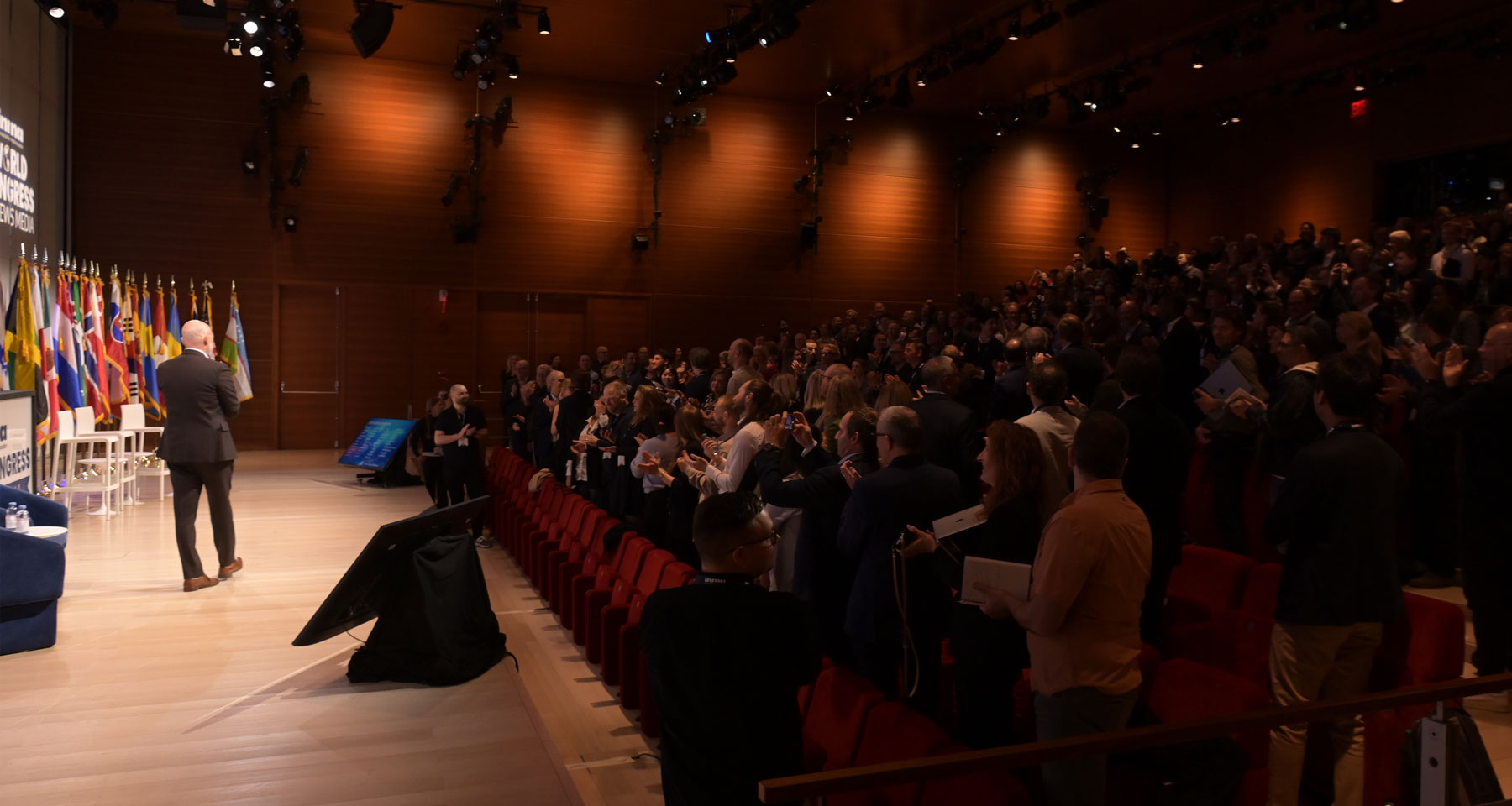INMA study tours wrap up two days, 15 news company visits
World Congress Blog | 20 May 2025
Two days and many news company visits into INMA’s World Congress of News Media, Researcher-in-Residence Greg Piechota had this observation:
News companies are coming at their business strategies from two perspectives: a low-cost strategy (without much differentiation) and a differentiated strategy (using a human touch).
“If you can lower the cost and create better workflows using AI, you get faster at drafting stories and editing videos, but everybody will have the same tools,” Piechota said. “So imagine instead of 115 journalists, because of AI you have 2,000 journalists. Or 20,000 journalists. A better question is this: What if everybody has 20,000 journalists with AI? Where is the differentiation coming from?
With those questions in mind, here is a quick look at the tour stops on Tuesday, following a full day of tours on Monday:
The Atlantic
Jim Quindlen, vice president of product design at The Atlantic, spoke to attendees about “incorporating a start-up culture into the newsroom” to breed innovation and new ideas.

The Atlantic has been able to do this through the launching of Labs, “a research development site from the product and technology team used to incubate product ideas and test new technologies,” Quindlen said. This has allowed the team to experiment with different features and test engagement with minimal risk.
The Atlantic has continued to make it a goal to retain subscribers through creating a multi-dimensional experience and incorporating development in AI and LLMs.
“We don’t want to be left behind. We can’t put our heads in the sand.” Qunidlen said in response to using AI as a development tool, explaining that the core of this development is “an extremely team-oriented development process” between the Web site design team, editors, and journalists.
BBC
As the BBC continues to expand outside of the U.K., General Manager Ben Goldberger explained the news company’s cohesive strategy: “We needed to create a central place that harnesses the best of what we do, all presented in one cohesive look and feel.”
In expanding to a new continent (North America), BBC Studios has identified a few challenges including that “content access and discoverability and the product experience were out of step with commercial opportunity.”
To address these challenges, Anne Look Thiam, head of audience development, said her team is “integrating audiences insights into editorial decision-making.”
Financial Times
Describing the United States as a “complex market,” Matthew Fottrell, vice president/Financial Times U.S. and managing director/FT Specialist, explained the U.K.-based company has focused on value rather than volume in the United States.
At close to US$550 for an annual subscription, FT subscribers are “the most valuable of any region in the United States,” he said. “We write about America for everyone outside of America. We’ve got an international perspective for how American is seen in the rest of the world and what is America’s effect on the rest of the world.”
FT’s key metric is GPA: global paying audience. That number is 3 million, with 900,000+ in the United States.
The product experiment that has moved audiences most in the past year of experimentation has been FT’s live blogs, John Kundert, chief product and technology officer, said: “That has made a really big impact in the way people come and stay on the site.”
Business Insider
Both Business Insider and parent company Axel Springer have found ways to use AI in a way that streamlines work for journalists.
The news company is doing more original reporting for a few reasons, Julie Zeveloff, newsroom chief-of-staff at Business Insider, told study tour attendees:
“... As a result of [Editor-in-Chief Jamie Heller] joining and some of the changes that we’ve made to the newsroom — and also thinking about tools that can free us up to really focus on being reporters.”

With AI, Business Insider has been able to go through court documents, do interview prep, edit photos, and brainstorm headlines. However Zeveloff still champions that “our editors and journalists are in charge of everything that gets published and that isn’t going to change.”
Yahoo News
Rosa Heyman, editor-in-chief at Yahoo News, talked with study tour attendees about the potential of AI to curate a personalised user experience while also giving users the opportunity to curate their own experiences.
“We now have the possibility to adapt content into users’ preferred format,” she said.

Platform personalisation has become a key strategy for Yahoo, and AI is becoming an important tool in that development, Tanya Pai, director/editorial, said: “We try to differentiate what we’re doing by format … but we always want to make sure we have that human element.”
Newsweek
With trust in news media at a stunning low in the United States, Newsweek is working to build it. One initiative that seems to be working: a fairness meter and a trust meter, added to selected stories to get real-time feedback on how readers are feeling about their content.

Launched in 2023, the feedback has helped shape the newsroom’s news gathering process, Jennifer Cunningham, editor-in-chief, told study tour attendees.
“Seventy percent vote our stories are fair,” she said. “Americans have more faith in Congress than in the Fourth Estate. If there’s no trust, you can have all the Pulitzer Prize-winning investigations you want, but they won’t read it because they don’t trust you.”
Reuters
Reuters began investing heavily in AI about two years ago. Several of its tools are now part of the everyday workforce at the U.K.-based news company.
“We encourage the newsroom to experiment with AI,” Richard Baum, global general manager of Reuters newsroom operations, said. “The tools we are developing in the newsroom are feeding into tools for our customers. Everything we use is a candidate for something we can use for our customers.”

Mahesh Ramachandran, head of technology at Reuters, shared several GenAI tools currently in use:
-
FactGenie: Creates news alerts from press releases for Reuters subscribers in 16 seconds (down from the 60 it takes an editorial staff member).
-
LAMB: Packages stories, cutting down production by 8%.
-
LUX summary: Creates a five-section company profile reviewed by a journalist, allowing a greater volume of such profiles to be created.
“This is more of a cultural challenge than a tech challenge,” Baum said. “The tech is doable. Getting people to buy into it is much harder.”































